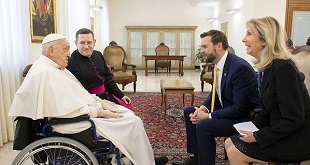
By Mwambutsya Ndebesa
Why the Banyakole say ogwakijungu gwita otagireyo, meaning the white colonial master only punishes those who do not show up
Uganda has some of the best designed policies in Africa but some of the worst implementation record on the continent. Whether it is agricultural, fiscal, decentralisation, health, name it, Uganda’s policies are the envy in sub-Saharan Africa. Uganda has recently even led in restoring the National Development Plans in Africa, a practice that had been abandoned in favour of the short-term Structural Adjustment Programmes. Why, therefore, is there a missing link between policy design and policy implementation?
Some argue that Uganda lacks technical, managerial and financial skills. Others say that the well-designed policies are not suitable to our peculiar conditions and context. Yet others opine that there is lack of policy ownership by the citizens. All the above may be correct but are not sufficient explanation for the implementation deficit.
President Yoweri Museveni argues that policy implementation deficit is due to lack of NRM cadres in the public service. At times he blames interference and sabotage from the opposition, media, foreign interests and the political class in general. His latest scapegoat for policy implementation failure is Civil Society Organisations.

The main problem in my opinion need not be sought in any of the above scapegoats. The problem is political patronage. The problem is not to be sought from policy agents but from the system of personalised relationships in governance. Unless Uganda transits from personalised rule to institutional rule we shall continue designing good policies but remain with an implementation deficit.
The difference between the Countries of South East Asia such as South Korea, Taiwan , Malaysia , Singapore etc which have made a breakthrough in spite of the western dominated World and Uganda, is that, the bureaucracy in the former is hired, supervised and promoted on merit. In Uganda it is Mwana Wa Ani – whose child is he? Does he come from the right tribe , region , party , social class or in one way or the other connected to the President’s office? There may be formal policies, mechanisms and procedures of recruitment , remuneration and promotion in the public service but there are very many subtle methods of side stepping the official and known procedures.
In Uganda, formal rules and procedures are sometimes mere smokescreens obscuring patronage. You get a case of a public servant who formally and officially occupies a high post in a ministry or department but he cannot exercise his authority on his subordinate simply because the latter has the right connections. It was even rumoured that a certain Vice President used to feel inferior to Presidential Assistants.
You find a scenario where a junior officer in a ministry, statutory body or police has more powers than his superiors because of personal connections with the president’s office or it could be that the junior office has some powerful connections as a good NRM cadre or is perceived by his colleagues in the ministry to be an intelligence operative tasked to report on his colleagues to the appointing authority. When a senior officer feels helpless before his subordinate, there is paralysis in policy implementation. The senior officer will just keep reporting to office as a matter of routine.
This case scenario was common during colonial period. The subjects of colonial rule were not organically connected to the state but never the less they feared to be punished. So they used “the weapon of the weak” so to say; merely report to work in the morning and go back home in the evening. This weapon of the weak practice was called in Runyakole ogwakijungu gwita otagireyo meaning, the white colonial master only punishes those who do not show up. Working meant you merely showed up to avoid punishment but not to work.
Another moral dampening practice in Uganda’s public service is the embarrassing big gap in salary pay. The latest example in the public is the case of the KCCA Director who earns a whopping Shs 36 million per month.
What message does the KCCA scenario send to all public servants?! Does it mean such officers are more important than others? Is KCCA more important than other strategic state departments say Mulago Hospital, Makerere University, the Judiciary, the Police, the Army, Finance etc? Doesn’t this salary inequality affect service delivery and policy implementation? Ugandans have complained about this salary inequality but their voices have fallen on deaf ears and some have now resorted to the weapons of the weak either by voting with their feet and seeking greener pastures or staying put, aloof, indifferent, cynical and watching as things go wrong.
Related to the issue of salary differential is the aspect of nonwage benefits. You get a scenario where say a Permanent Secretary in Ministry X who largely depends on his official basic salary but his subordinate who is attached to a lucrative donor project earns a lot more than his boss in terms of special allowances and other nonwage benefits such as free transport, housing, trips abroad etc. This lowers the morale of the PS who at times has to endure the embarrassment of begging transport and fuel from his subordinate who is attached to the donor project.
There is also another public service disincentive that arises out of the syndrome of expatriates. In some government ministries, say agriculture, you find an expatriate who cannot tell whether coffee berries are ripe or not coming here to advise on how to grow coffee. This expatriate earns sometimes ten times more than his local counterpart. This is not to talk about the nonwage benefits the expatriate gets over and above the huge salary.
Yet another morale dampening practice in the Ugandan public service is in promotions. You find some individuals by virtue of their good connections to the ‘godfather/mother’ get “fast-tracked” to use the common slang while others are left stagnant. Others get onto lucrative donor projects while others are left out. In some instances you find a case where when a public servant who works extra hard he is punished for supposedly poking his nose in areas that are not his concern.
Therefore, when governments and development partners are reviewing aid effectiveness or policy implementation, they should not focus on technical capacity factors alone but should also focus on policy governance factors that arise out of political patronage.
Prof. Mwambutsya Ndebesa is a lecturer of History and Development Studies at Makerere University in Kampala
Email: ndebesam@yahoo.com
 The Independent Uganda: You get the Truth we Pay the Price
The Independent Uganda: You get the Truth we Pay the Price



